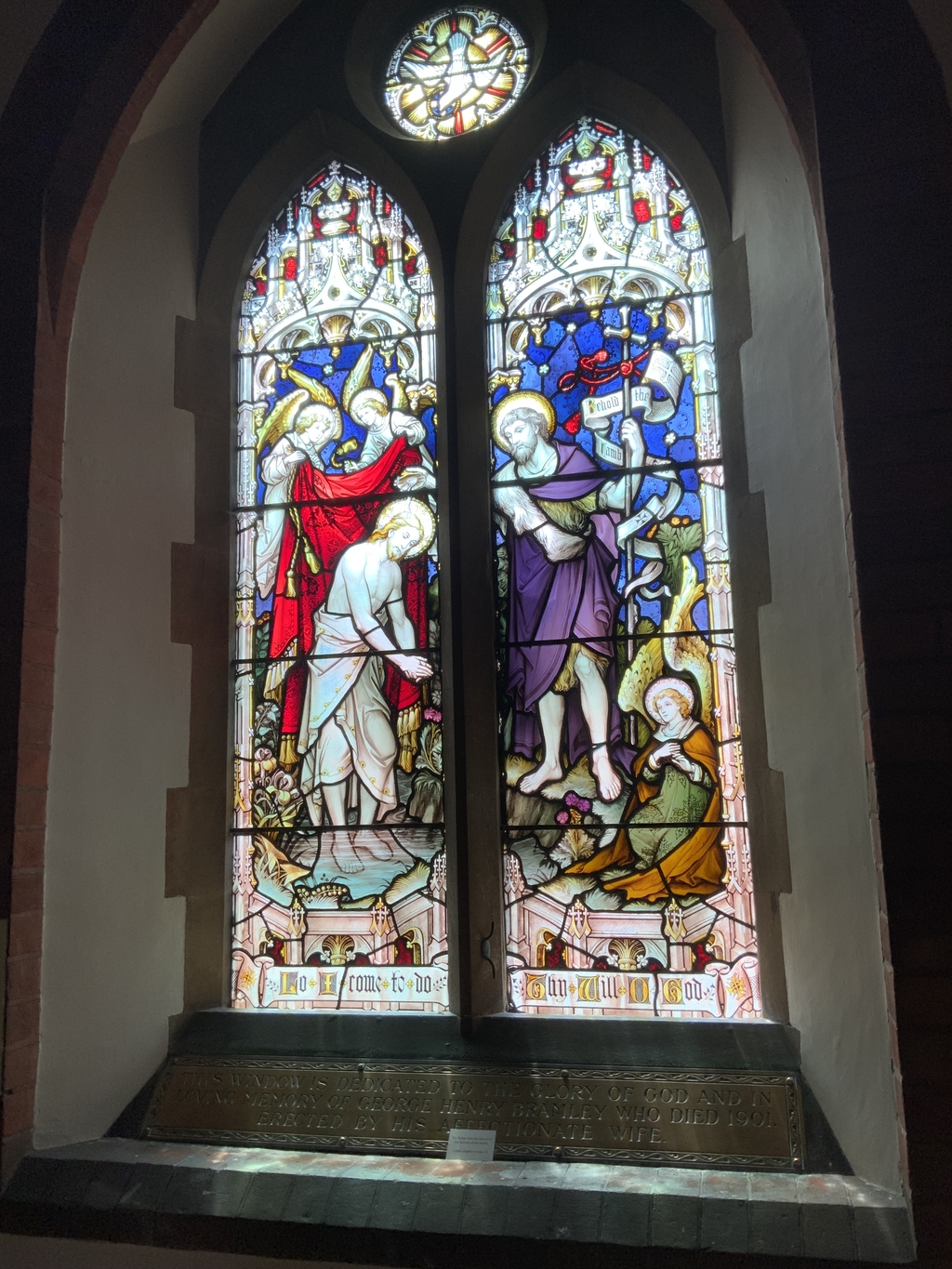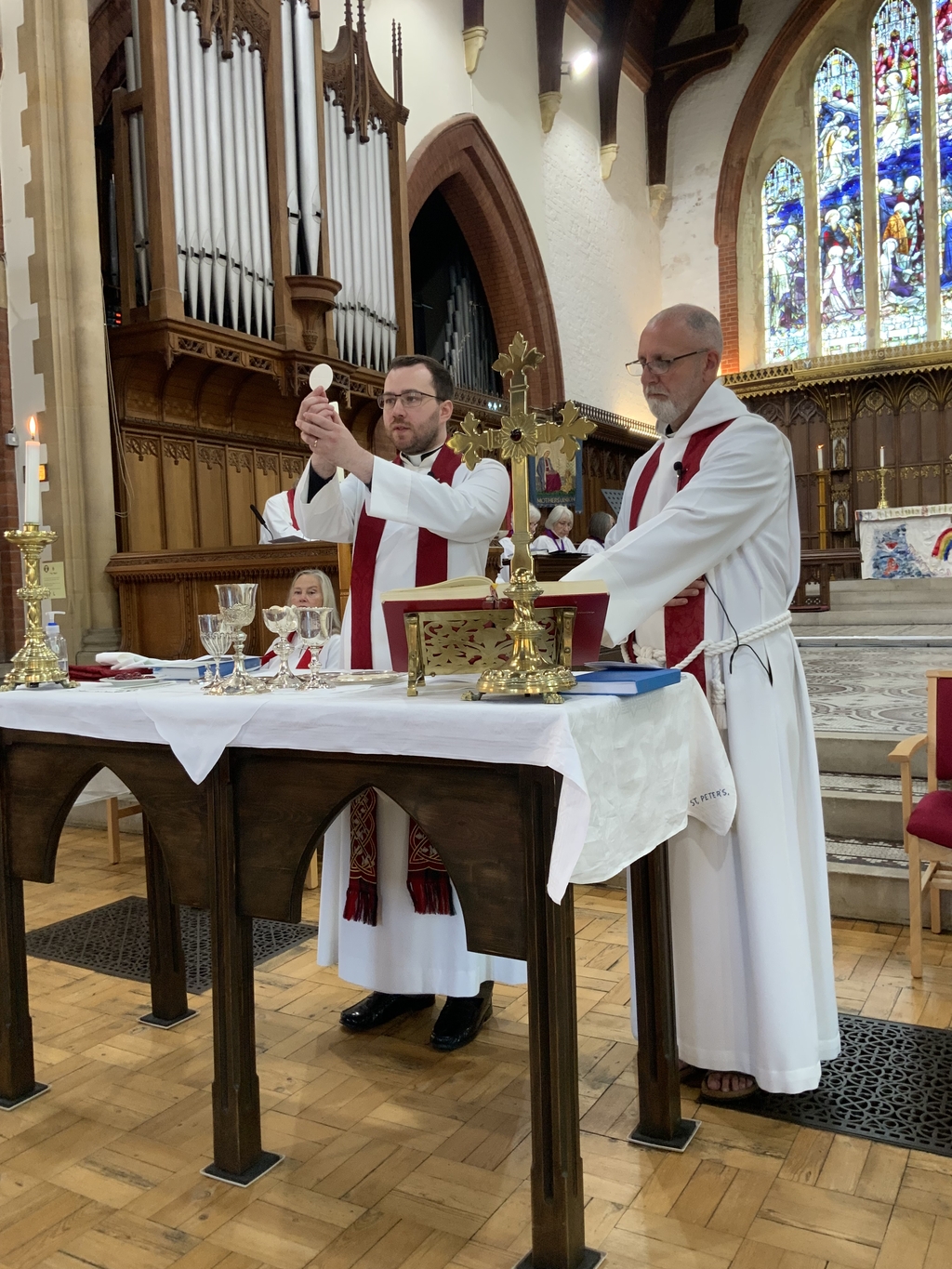Living Together in Community
Reconciliation is at the heart of Christianity. The symbol of the cross reminds us of its ultimate message, that through the cross God was reconciled to humanity and humanity to God through Christ.
So how does this truth play out in our relationship with each other? What do you do when somebody hurts or offends you? Do you keep it to yourselves and brood? Or do you face up to the person? We often think that we are being Christians by avoiding such issues and keeping quiet. However, today’s Gospel (Matthew 18.15-20) challenges us otherwise.
In today’s Gospel reading, Matthew advises addressing issues and problems in the life of the organised community of the local church. He is writing at a time when Jesus is present, not in the flesh but in Spirit, whenever two or three are gathered together in his name. The theme is the relationship between the members of the church, one to another, in an offence that violates the bond of fellowship. Matthew writes this instruction in a setting of an address given by Jesus to his disciples.
The advice is straightforward indeed: ‘If another member of the church sins against you, go and point out the fault when the two of you are alone.’ The Gospel says that the offended party, not the offending one, should seek out reconciliation. That makes perfect sense, for how do I know I have offended someone if I’m not told? It counsels personal intervention and honest talking. It encourages members of the church - and this is one of the few places in the Gospels where the word ‘church’ or ‘Ekklesia’ is used - to straighten things out with each other in private if at all possible, Christians are to deal with each other with truth and grace and personally. No anonymous complaints to the authorities, no whisper campaign and no running away from the fellowship. The purpose of confronting someone who has wronged you is not to humiliate them, but to be reconciled to them. It is an honest attempt to stop a poison tree growing between people. If private reconciliation fails, another attempt must be made by invoking the help of one or two others, who are to try and settle things before it all goes public. Exclusion from the local community is the very last resort, and even then we are asked to treat the offender like a Gentile or tax-collector whom we know Jesus associated with and never stopped loving.
All the practical advice in the Gospel centres on Christians taking responsibility for each other. Belonging to a community implies being involved in the life of its members. This isn’t a free pass for snoopers and busybodies, but a procedure for a caring community to follow. It is a way of handling hurt and anger. Just as conflict is almost inevitable in a community of sinners, confronting somebody can be the language of love. Like the story of the poison tree, the refusal to face up to your anger and hurt ends up as a refusal to love.
St Paul tells in today’s New Testament reading (Romans 13. 8-end), ‘Love does no wrong to a neighbour, therefore, love is the fulfilling of the law.’ If love is real, it cannot avoid facing conflict. If a relationship is broken, then it is important to recognise that brokenness, for it is in brokenness that we find Jesus - his broken body on the cross and in the Eucharist. Doing nothing in the face of perceived wrongdoing and hurt is precisely what the Gospel opposes.
There is no doubt that today’s Gospel message is tough to follow. However, with truth and grace we approach each other with care, trusting that voicing our discomfort will be accepted in the best spirit. It may not work, but it’s better than planting a fatal orchard of anger.
So, as we reflect upon this particular Gospel teaching, let us all commit to honest, truthful, graceful, fruitful living, for in God all things are possible.
With every blessing,
Christian














